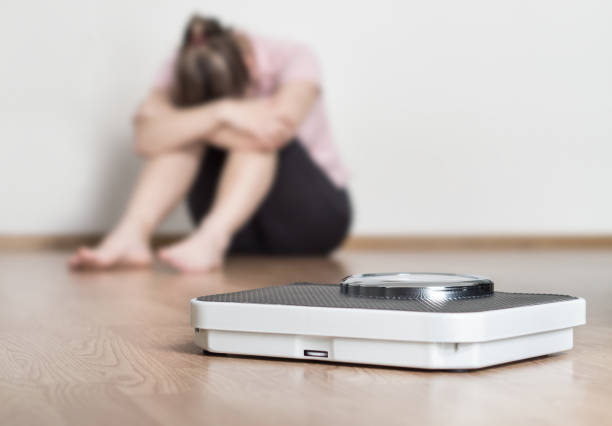Parent Advisory: In January, Beware Social Media-Induced Eating Disorders

Fitness, diet, and weight loss companies are everywhere in January, promising a “new year, new you.” These types of messages on social media are an increasingly recognized risk factor for children and teens to develop poor body image, restrictive eating habits, and dangerous eating disorders. Recent research from the Wall Street Journal found TikTok pushing thousands of videos with harmful messages like how to eat only 300 calories a day or how to hide not eating from parents to teen accounts. Similar content is prevalent on YouTube, Instagram, and other social media platforms children use daily.
Parents should know that while social media always presents risks for kids struggling with body image or food, January can be an especially risky month. Parents should be aware of their kids’ social media use and talk to them about self-acceptance and healthy habits.
- Eating disorders are on the rise. The number of kids being hospitalized for eating disorders has recently doubled, and the National Eating Disorder Helpline reports a 40% increase in calls seeking help.
- Eating disorders are dangerous. Anorexia has a 10% death rate, higher than almost any other mental illness.
- There have been hundreds of studies – including internal research at companies like Meta – showing a link between social media use and disordered eating, poor body image, and low self-esteem in teens.
- Weight loss and fitness companies spend about 4 times as much on advertising at the beginning of the year than other times, flooding consumers who may be feeling vulnerable about their bodies with pressure to change.
While parents are a critical part of keeping kids safe online, tech platforms also need to address the significant health and safety risks their products create for kids. Tech platforms can help reduce eating disorders and poor body image by reducing dangerous content and promoting diverse creators. ParentsTogether recommends tech platforms take the following steps to protect kids’ mental health and self-esteem:
- Remove dangerous content and stop pushing weight loss content to kids’ accounts: Social media platforms should remove the most extreme and dangerous content advocating for eating disorders and related forms of self-harm, including skin lightening and other dangerous chemical treatments. They should also stop actively pushing all dieting and weight loss content and ads to children’s accounts.
- Let parents see what their kids see: Platforms should create parental account settings and controls that make it easier for them to see what their kids see online and support them in having conversations with their kids about their bodies and health.
- Feature diverse creators who celebrate self-acceptance: Platforms should actively promote content creators with diverse bodies, backgrounds, and personal appearances and those who support messages of body acceptance, self-love, and balanced health.
Click here to see more ways ParentsTogether is asking tech companies to keep kids safe.

